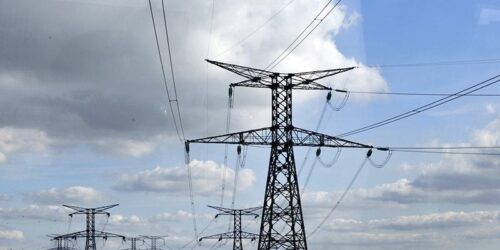With power sector circular debt touching Rs2.327 trillion as of June 30, 2021, the Cabinet Committee on Energy (CCoE) on Thursday ordered expeditious implementation on oil crisis report including transfer of additional powers to Oil & Gas Regulatory Authority (Ogra) to regulate oil marketing sector.
Presided over by Planning Minister Asad Umar, the CCoE also desired a final position of all the stakeholders on allocation of pipeline capacity and tie-in mechanism before the next meeting to secure final investment decisions (FIDs) from investors of two additional merchant LNG terminals. It was noted that discouraging signals were going out to the investors who had paid different fees and made other expenditures so far which was not a good omen.
The Power Division presented its monthly circular debt report that reported total power sector circular debt at Rs2.402tr at the end of May 2021,showing an increase of Rs251bn from Rs2.153tr carried forward on July 1, 2020.
The report provisionally projected circular debt at Rs2.327tr as of June 30, 2021 on the basis of Rs90bn payments to independent power producers (IPPs) a few days ago. As such, the power division reported an increase of Rs177bn in circular debt during the entire 2020-21 when compared with Rs541bn surge in fiscal 2019-20.
The report said a major chunk of increase in circular debt of Rs130bn because of unbudgeted subsidies out of Rs177bn total increase and about Rs70bn on account of interest on delayed payments to IPPs. “The committee noted that the circular debt build-up had substantially reduced in comparison to the previous years,” said an official statement, adding the Power Division was directed to continue with its efforts for further reduction.
Sources in the Petroleum Division said Secretary Petroleum Dr Arshad Mahmood submitted a progress report on implementation of decisions of the federal cabinet and the CCoE on 2020 petroleum shortage crisis. He reported that some of the policy, legal and administrative actions had been completed while remaining such steps will take some time to complete while physical implementation could take 3-5 years, for example in upgradation of refineries and storages etc.
Additional powers for Ogra
The report said the stakeholders had reached consensus that a lot of powers currently vested with the Director General of Oil have to be transferred to Ogra for which an agreed draft of revised rules — Pakistan Petroleum (Refining, Blending and Marketing) Rules 1971 — had been pending with Law Division for vetting and then clearance by Cabinet Committee on Legislative Cases (CCLC).
Under the said mutually agreed draft, powers under rules 7, 8, 9, 20, 30, 30B, 31, 39 and 43C would stand transferred to Ogra with the ratification of the cabinet.
Under rule 7, every refinery shall now submit its production programme for next half of fiscal year one month in advance to the regulator as required under the economic interests of the country and its own ability to meet the demands of the market as economically as possible.
Under rule 8, Ogra would now approve the said programme of production which such modifications, if any, as it may indicate in its order of approval keeping in mind the ability of the refinery to make adjustments.
Under rule 9, every refinery shall carry on its production in accordance with the programme of production approved under rule 8 without any change, departure or modification unless with prior approval of the regulator.
Likewise, the rule 20 would empower Ogra that every blending plant, grease plant, reclamation plant and white oils production plants shall submit their bi-annual production plans including any change or alteration in such plans. Under rule 30, no agreement relating to the supply, purchase, sale, storage or export of any imported petroleum products shall be entered into by any person without the prior approval of the regulator.
Under Rule 30B, where the production of petroleum products by the local refineries is found insufficient, the regulator would have powers to impose conditions from time-to-time for a marketing company to import such products. The regulator will have powers under rule 31 to prohibit the sale or disposal of any product in any area.
Under rules 39, every refinery, blending plant, (reclamation plant) and marketing company shall give to the regulator a 7-day prior notice for closure or stoppage of operations along with the reasons and the period for which it is likely to continue.
Under 43C, Ogra will have powers to direct any refinery, marketing company or its agent or dealer or a blending plant (or reclamation plant) to supply such quantity of any petroleum product to such person as may be specified in the order.
The committee directed speedy implementation on above steps and also directed Federal Investigation Agency (FIA) to update the CCoE in its next meeting on the progress of its investigations, assigned to it by the cabinet.





